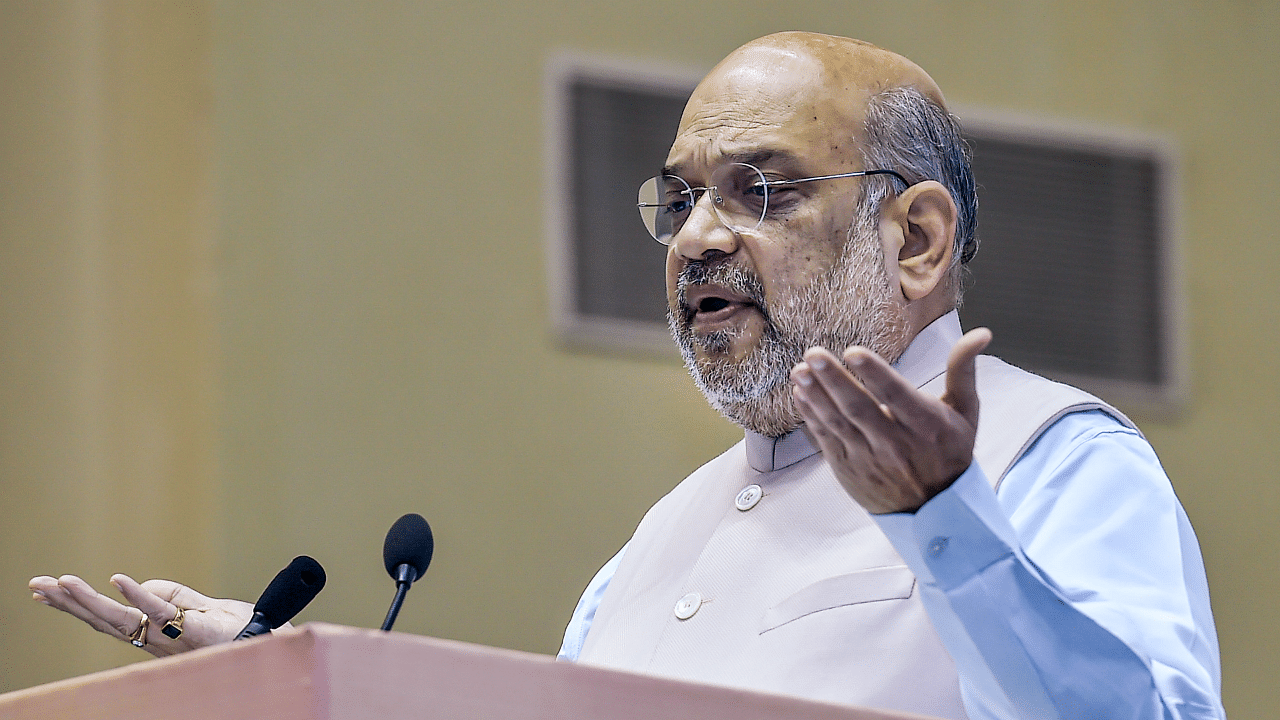
Home Minister Amit Shah was very clear in his speech on April 7 when he said that all eight states in the Northeast have agreed to make Hindi compulsory till class X. Chairing the Parliamentary Committee on Official Language, Shah stressed that Hindi, not English should be the language for communication among people speaking different mother tongues.
The protest and fear Shah's statement has triggered since then across the Northeast and the denial by at least three state governments about the Hindi push has not just put the Centre in a spot but has made it clear that its implementation would be difficult.
"Imposition of Hindi as a compulsory subject in the Northeast will be detrimental not only for the propagation and dissemination of the numerous indigenous languages but also to students who will be compelled to add another compulsory subject to their already vast syllabus. Such a move will not usher in unity but will be a tool to create apprehensions and disharmony," the North East Students' Organisation (NESO), a forum of several students' organisation said in a letter to Shah on April 11.
NESO comprises the influential All Assam Students’ Union (AASU), Naga Students’ Federation (NSF), All Manipur Students’ Union (AMSU), Twipra Students’ Federation (TSF), All Arunachal Pradesh Students’ Union (AAPSU), Garo Students’ Union (GSU), Mizo Zirlai Pawl (MZP) and Khasi Students’ Union (KSU).
"This is nothing but a move by BJP to appease the voters in the Hindi belt, where over 43 per cent of people speak Hindi. We will never allow such an imposition in Assam," said AASU.
Northeast's tense past with languages
Amit Shah's statement led many in Assam to talk about the violent movement the state had witnessed in the 1960s when Assamese nationalists resorted to agitation for the restoration of Assamese as official language instead of Bengali, which was introduced during colonial times.
The state also witnessed a strong movement for implementation of the Official Language Act several times by replacing all official communication in English with Assamese, which is still being largely practised in the state. "We have urged the government several times to make Assamese and other indigenous languages compulsory till class X in CBSE-affiliated schools but not much has been done even today," said Jadav Chandra Sarma, secretary of Asam Sahitya Sabha, the 105-year-old literary organisation. "Imposition of Hindi will further endanger Assamese and other indigenous languages. The fact that the Centre is trying to make Hindi compulsory till class X only in the Northeast and not in other non-Hindi speaking states has also created a sense of doubt," Sarma said.
Also Read: Shah must stop obsessing about Hindi
Many in Assam also referred to the Census report that revealed that the percentage of Assamese speakers came down from 48.80 per cent to 48.38 per cent between 2001 and 2011. Similarly, the percentage of those speaking Hindi increased to 6.73 per cent from 5.89 per cent in the same decade. Assamese speakers fear the increase in those speaking Bengali (Bengali Hindu and Bengali speaking Muslims) and Hindi.
Assam CM Himanta Biswa Sarma was the first to react to Shah's statement when he denied the possibility of Hindi introduction at the cost of Assamese. "There has been no such directive from the Centre to make Hindi compulsory till class X. Amit Shah has not said that we should learn Hindi instead of Assamese. We also want our young boys and girls to learn Hindi to increase their scope for employment," he said, stating that the state government is working on a four-language policy, comprising indigenous Assamese, English and Hindi. The new National Education Policy talks about three language formula.
Nagaland and Mizoram government, however, has denied Shah's claim that they agreed to make Hindi compulsory till class X. Hindi is now compulsory till class VIII in Assam and the rest of the Northeast but is optional in class IX and X under state boards.
Mizoram has said that there was no such discussion about making Hindi a compulsory subject till class XI since Mizo National Front (MNF) came to power in 2019. MNF is a partner of NDA while NDPP, which leads the coalition government in Nagaland has said that it was not possible to make Hindi an alternative to English, the medium of instruction in the state board schools, too.
Check out DH's latest videos